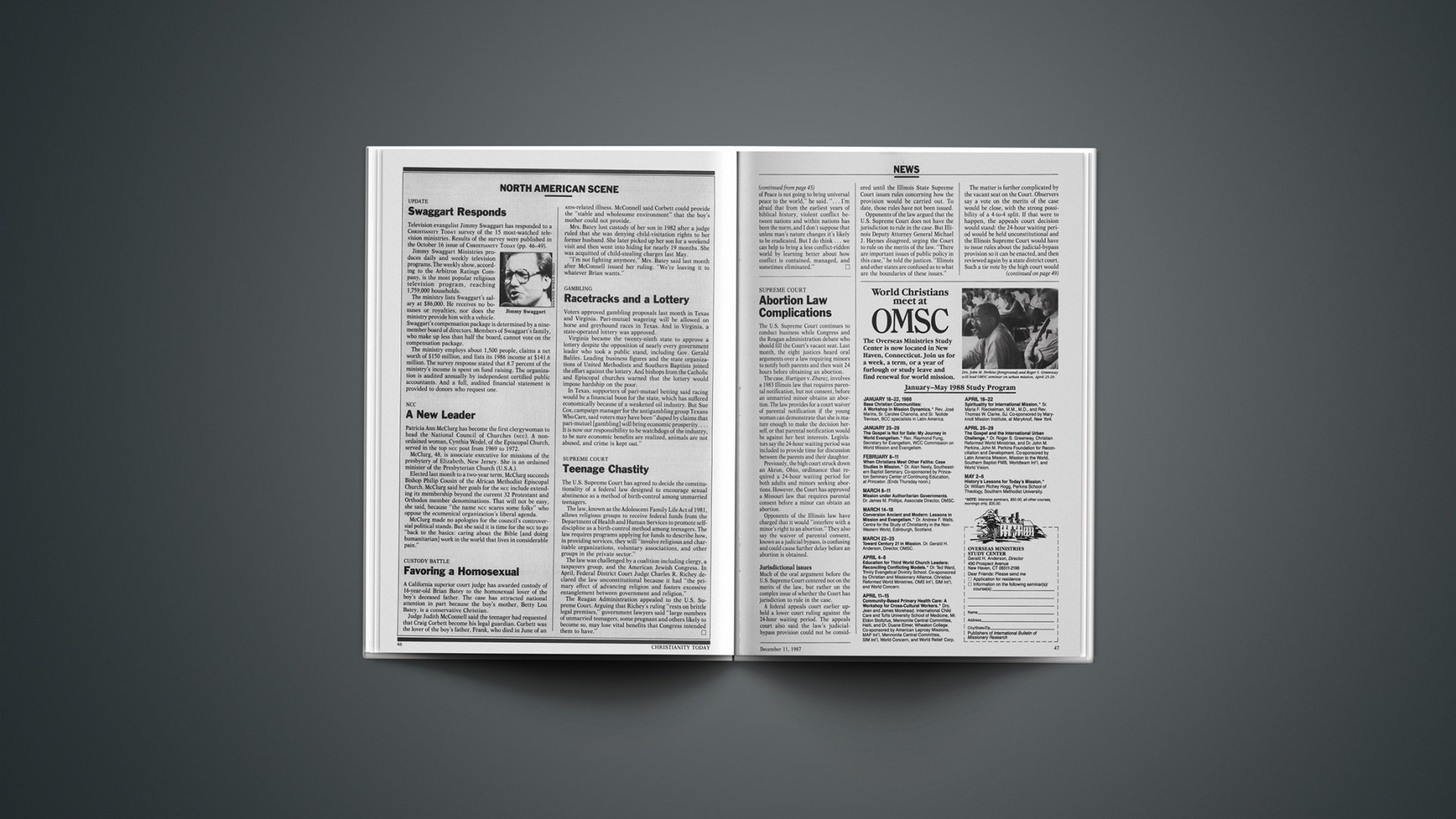The U.S. Supreme Court continues to conduct business while Congress and the Reagan administration debate who should fill the Court’s vacant seat. Last month, the eight justices heard oral arguments over a law requiring minors to notify both parents and then wait 24 hours before obtaining an abortion.
The case, Hartigan v. Zbaraz, involves a 1983 Illinois law that requires parental notification, but not consent, before an unmarried minor obtains an abortion. The law provides for a court waiver of parental notification if the young woman can demonstrate that she is mature enough to make the decision herself, or that parental notification would be against her best interests. Legislators say the 24-hour waiting period was included to provide time for discussion between the parents and their daughter.
Previously, the high court struck down an Akron, Ohio, ordinance that required a 24-hour waiting period for both adults and minors seeking abortions. However, the Court has approved a Missouri law that requires parental consent before a minor can obtain an abortion.
Opponents of the Illinois law have charged that it would “interfere with a minor’s right to an abortion.” They also say the waiver of parental consent, known as a judicial bypass, is confusing and could cause further delay before an abortion is obtained.
Jurisdictional issues
Much of the oral argument before the U.S. Supreme Court centered not on the merits of the law, but rather on the complex issue of whether the Court has jurisdiction to rule in the case.
A federal appeals court earlier upheld a lower court ruling against the 24-hour waiting period. The appeals court also said the law’s judicial-bypass provision could not be considered until the Illinois State Supreme Court issues rules concerning how the provision would be carried out. To date, those rules have not been issued.
Opponents of the law argued that the U.S. Supreme Court does not have the jurisdiction to rule in the case. But Illinois Deputy Attorney General Michael J. Haynes disagreed, urging the Court to rule on the merits of the law. “There are important issues of public policy in this case,” he told the justices. “Illinois and other states are confused as to what are the boundaries of these issues.”
The matter is further complicated by the vacant seat on the Court. Observers say a vote on the merits of the case would be close, with the strong possibility of a 4-to-4 split. If that were to happen, the appeals court decision would stand: the 24-hour waiting period would be held unconstitutional and the Illinois Supreme Court would have to issue rules about the judicial-bypass provision so it can be enacted, and then reviewed again by a state district court. Such a tie vote by the high court would not set a national precedent.
Americans United for Life, a prolife law firm that filed several friend-of-the-court briefs in support of the law, has been a key participant in this case. Chief staff counsel Maura Quinlan said Hartigan v. Zbaraz is important because several states with similar laws are waiting to see how the high court will rule. About 30 states have passed abortion legislation involving some form of parental inclusion. Quinlan said a Minnesota statute similar to the Illinois law resulted in significant decreases in the number of teenagers who became pregnant, gave birth, or obtained abortions.










